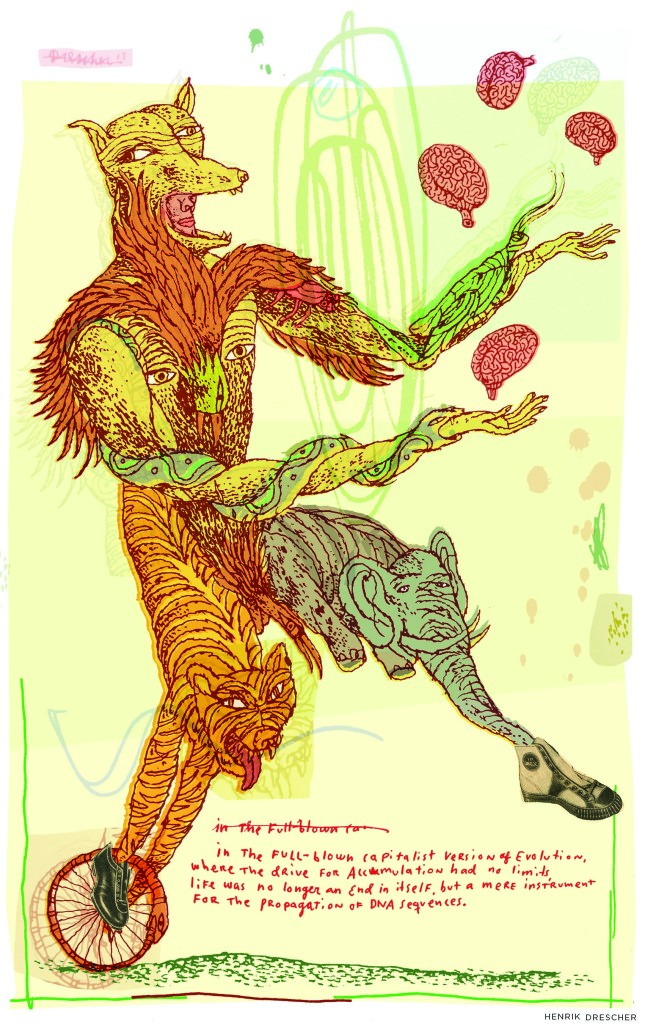“In the full-blown capitalist version of evolution, where the drive for accumulation had no limits, life was no longer an end in itself, but a mere instrument for the propagation of DNA sequences.”
WHAT’S THE POINT IF WE CAN’T HAVE FUN?
Article by my favourite David Graeber on how the meaning of life, even matter itself, could in many important ways be to play. If it sounds too out there for you, give it a shot, you might be pleasantly surprised. The way I see it, it strikes a great balance between being intellectually adventurous and grounded.
Here’s a snippet from the article on the whole concept of the selfish gene:
[…] It came, instead, to be subsumed under the broader “problem of altruism”—another phrase borrowed from the economists, and one that spills over into arguments among “rational choice” theorists in the social sciences. This was the question that already troubled Darwin: Why should animals ever sacrifice their individual advantage for others? Because no one can deny that they sometimes do. Why should a herd animal draw potentially lethal attention to himself by alerting his fellows a predator is coming? Why should worker bees kill themselves to protect their hive? If to advance a scientific explanation of any behavior means to attribute rational, maximizing motives, then what, precisely, was a kamikaze bee trying to maximize?
We all know the eventual answer, which the discovery of genes made possible. Animals were simply trying to maximize the propagation of their own genetic codes. Curiously, this view—which eventually came to be referred to as neo-Darwinian—was developed largely by figures who considered themselves radicals of one sort or another. Jack Haldane, a Marxist biologist, was already trying to annoy moralists in the 1930s by quipping that, like any biological entity, he’d be happy to sacrifice his life for “two brothers or eight cousins.” The epitome of this line of thought came with militant atheist Richard Dawkins’s book The Selfish Gene—a work that insisted all biological entities were best conceived of as “lumbering robots,” programmed by genetic codes that, for some reason no one could quite explain, acted like “successful Chicago gangsters,” ruthlessly expanding their territory in an endless desire to propagate themselves. Such descriptions were typically qualified by remarks like, “Of course, this is just a metaphor, genes don’t really want or do anything.” But in reality, the neo-Darwinists were practically driven to their conclusions by their initial assumption: that science demands a rational explanation, that this means attributing rational motives to all behavior, and that a truly rational motivation can only be one that, if observed in humans, would normally be described as selfishness or greed. As a result, the neo-Darwinists went even further than the Victorian variety. If old-school Social Darwinists like Herbert Spencer viewed nature as a marketplace, albeit an unusually cutthroat one, the new version was outright capitalist. The neo-Darwinists assumed not just a struggle for survival, but a universe of rational calculation driven by an apparently irrational imperative to unlimited growth.




